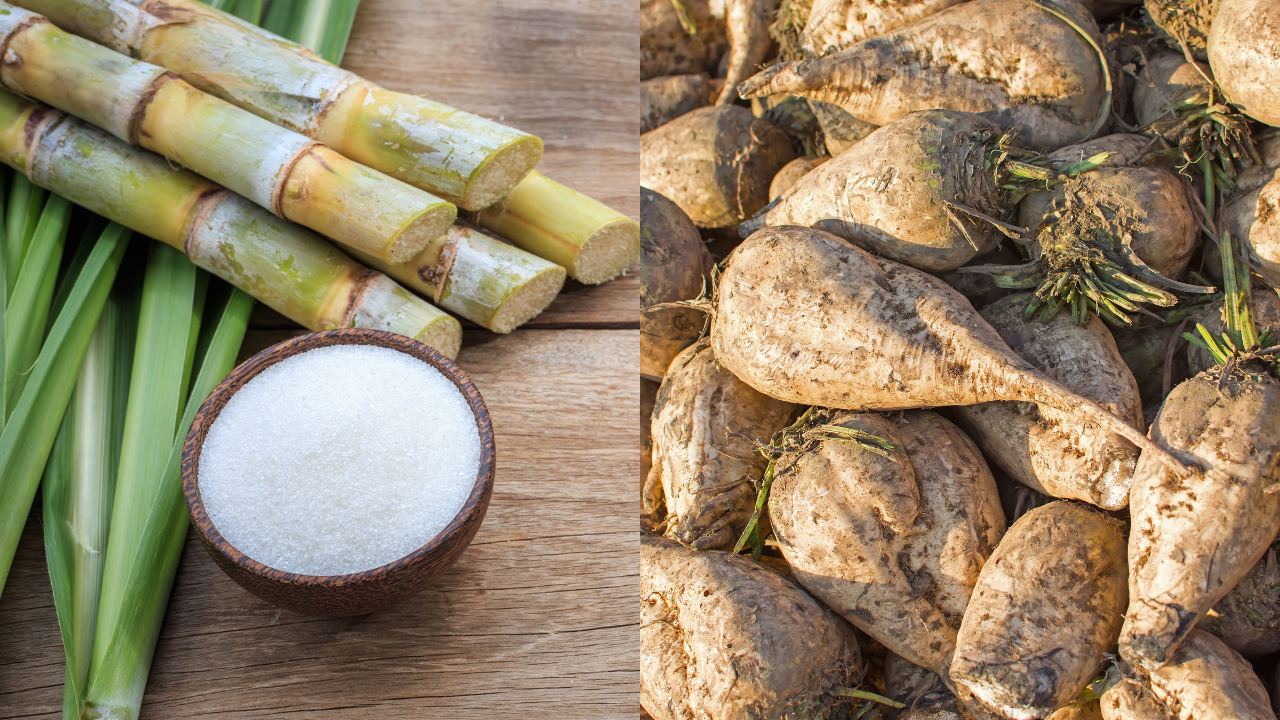When looking at beet sugar vs cane sugar, some argue that one caramelizes better than the other.
When looking at beet sugar vs cane sugar, some argue that one caramelizes better than the other.
Blog Article
Discover the Uses and Benefits of Beet Sugar Vs Cane Sugar in Your Daily Diet Plan
Exploring the unique qualities of beet and cane sugar reveals even more than simply their sweetening abilities; it highlights their distinct impacts on wellness and cookeries. Beet sugar, known for its subtle taste, is commonly favored in fragile treats, whereas cane sugar, with its tip of molasses, adds splendor to robust dishes. Each kind holds its very own nutritional account and glycemic ramifications, welcoming a much deeper understanding of their roles in a balanced diet regimen and sustainable usage techniques.
Origin and Manufacturing Procedures of Beet and Cane Sugar

The distinctive environments and dirt types required for expanding sugar beets and sugarcane contribute to distinctions in their growing methods and geographic circulation, influencing the business economics and sustainability of their production. beet sugar vs cane sugar.
Nutritional Comparison In Between Beet Sugar and Cane Sugar
In spite of originating from various plants, beet sugar and cane sugar are nutritionally extremely similar, both largely including sucrose. Each offers about 4 calories per gram, converting to approximately 16 calories per teaspoon. Structurally, both sugars are made up of around 99.95% sucrose, with very little quantities of various other substances like dampness and trace minerals, which do not considerably alter their nutritional accounts.

Eventually, when choosing in between beet sugar and cane sugar based upon nutritional content alone, both deal the same benefits and disadvantages as they are essentially forms of the exact same molecule-- sucrose, supplying fast power without other nutrients.
Effect On Wellness: Glycemic Index and Caloric Material
Exploring further into the results of beet sugar and cane sugar on health and wellness, it is vital to consider their glycemic index and caloric web content. The glycemic index (GI) of both beet and cane sugar is around 65, classifying them as high-GI foods, which can create quick spikes in blood glucose degrees.
Each kind of sugar consists of about 4 calories per gram, making their calorie web content equivalent. For those monitoring calorie intake, particularly when handling weight or metabolic health and wellness problems, comprehending this equivalence is essential (beet sugar vs cane sugar). However, excessive consumption of any kind of high-calorie, high-GI food can add to health concerns such as weight problems, cardiovascular disease, and insulin resistance.
Environmental and Economic Factors To Consider of Sugar Production
Beyond wellness effects, the manufacturing of beet and cane sugar likewise raises substantial ecological and economic concerns. Sugar More Info beet cultivation often tends to call for cooler environments and has a lower geographical footprint compared to sugar cane, which flourishes in exotic areas. Both plants are extensive in terms of water usage and land line of work, possibly leading to logging and water shortage. Economically, the international sugar market is extremely unpredictable, influenced by changes in global advice profession policies and aids. Lots of countries incentivize sugar manufacturing through economic assistance, skewing market prices and impacting small farmers negatively.
In addition, the use of pesticides and plant foods in both beet and cane sugar farming can lead to soil deterioration and air pollution, more impacting biodiversity and regional water bodies (beet sugar vs cane sugar). The option in between cultivating sugar beet or cane commonly rests on local environmental problems and economic factors, making the sustainability of sugar manufacturing a complex problem
Culinary Applications and Flavor Distinctions
While the environmental and economic elements of sugar manufacturing are certainly significant, the selection in between beet and cane sugar likewise affects cooking applications and taste profiles. Beet sugar, originated from the sugar beet plant, is known for its remarkably neutral preference. This makes it a flexible component in baking, where it does not modify the flavor of other components. It liquifies rapidly and is optimal for use in cakes, cookies, and breads.
Cane sugar, removed from sugarcane, typically keeps molasses traces, which impart a distinct richness and deepness. This minor molasses flavor improves the complexity of baked products, sauces, and marinates. It is especially websites favored in products where a caramel undertone is wanted, such as in brownies or gingerbread. In addition, the slight variant in wetness material between beet and cane sugar can influence the structure and consistency of dishes, making cane sugar a recommended selection for details dishes that take advantage of its unique residential properties.

Verdict
In verdict, both beet and cane sugar have distinct beginnings and manufacturing processes, providing similar nutritional accounts with minor distinctions in sodium material and taste. While their effect on health and wellness, specifically relating to glycemic index and calories, is equivalent, the choice between them commonly steams down to ecological, financial elements, and details culinary demands. Comprehending these elements can lead customers in making notified choices that line up with their health goals and taste choices.
Report this page